

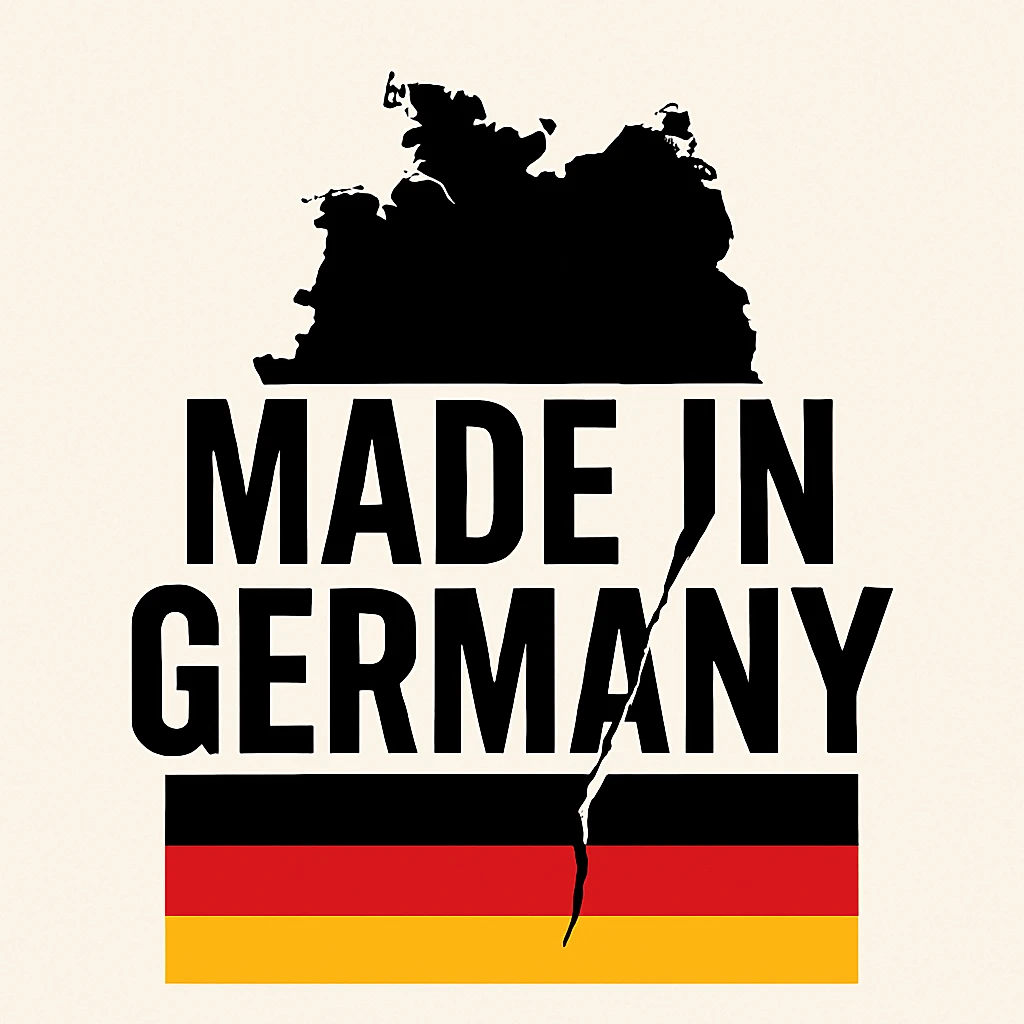
The Shift in Germany – What It Means for Your Expansion Strategy
Germany is no longer the stable, predictable economy we remember from textbooks. But that might just be your advantage.
The book Kaput. The End of the German Miracle by economist Wolfgang Münchau offers a sharp look at why Germany’s economic model is breaking down and why that doesn't mean the end, but the start of a new chapter. If you're considering expansion into the DACH region, this book will help you understand what works (and what doesn’t) in today’s Germany and how to turn the system’s weaknesses into your competitive edge.
Germany is no longer the stable, predictable economy we remember from textbooks. But that might just be your advantage.
The book Kaput. The End of the German Miracle by economist Wolfgang Münchau offers a sharp look at why Germany’s economic model is breaking down and why that doesn't mean the end, but the start of a new chapter. If you're considering expansion into the DACH region, this book will help you understand what works (and what doesn’t) in today’s Germany and how to turn the system’s weaknesses into your competitive edge.
For decades, Germany seemed like a machine built for certainty. An economic powerhouse driven by engineering precision, political stability, and an export model admired worldwide. But that machine has been grinding for a while now.
According to economist Wolfgang Münchau, it's not just a temporary malfunction, it’s the end of an entire system. His book Kaput. The End of the German Miracle is a sharp and urgent report on what’s no longer working in Germany and why it’s not going away anytime soon.
If you see Germany as a market, a partner, or a space for growth, this book is essential reading. Not to discourage you, but to prepare you.
Back in 2018, when the German economy was booming, everyone was expanding there. The market was crowded, and big players dominated both attention and sales. But things have shifted. Germany may be limping, but it remains Europe’s largest economy.
The DACH region still offers access to over 100 million potential customers. If you have a unique product, a clear pricing strategy, and the flexibility to adapt to the local mindset, your chances of success might actually be stronger now than ever before.
In the article below, you’ll find not only key insights from Kaput, but also practical reflections on how to apply them when planning your expansion. And how to turn the weak points of the German system into your competitive edge.
The Glory Years of the German Miracle
When people in Germany talk about "the good times" today, they usually mean the decades after 1990 a period seen as prosperous, marked by stable growth and low unemployment. But the real foundation of the German miracle goes back further. It began in the postwar years and reached its peak between the 1950s and 1970s. It was a phenomenon that captivated the world: a nation devastated by war turned into an industrial powerhouse in just two decades.
In Kaput, Wolfgang Münchau argues that this "miracle" wasn’t miraculous in a supernatural sense. It was the result of structural advantages, discipline, and pragmatic decisions. So what were the core pillars?
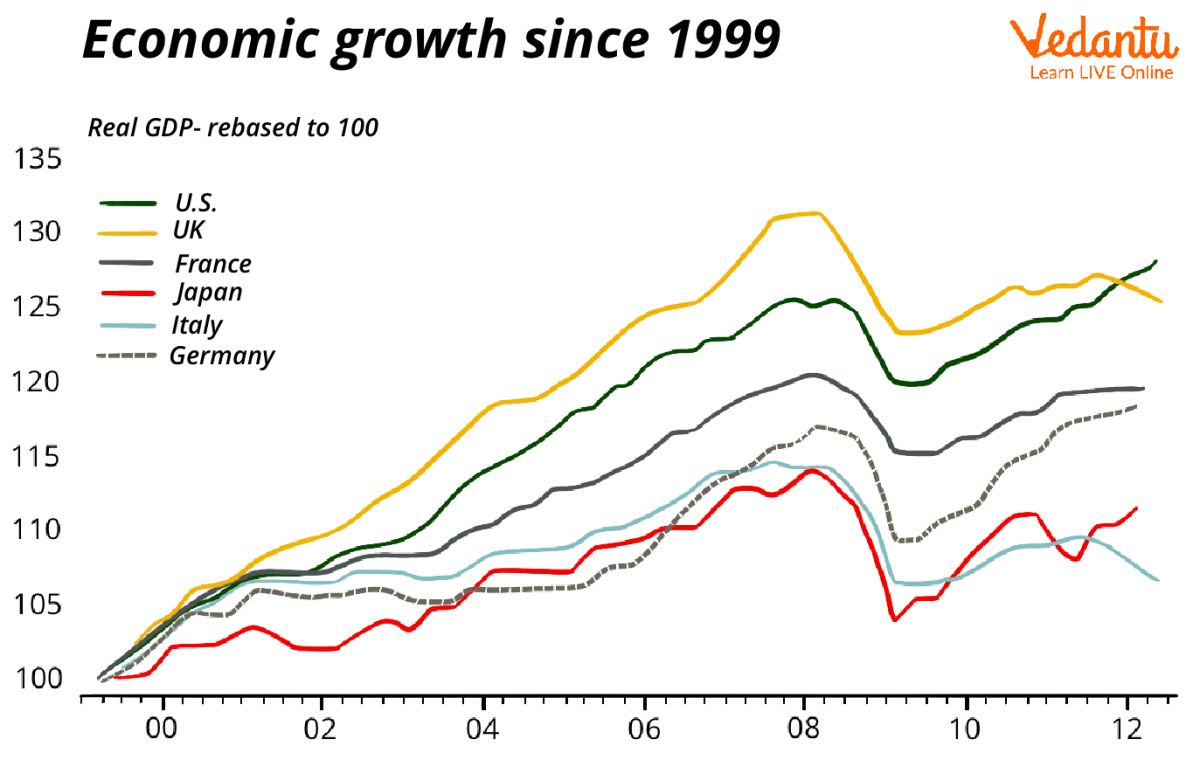
An Export Powerhouse:
Germany became synonymous with quality and reliability, whether in cars, machinery, or chemicals. Exports were (and still are) the backbone of its economy.Close Ties Between Industry and State:
For decades, the German economic model relied on an unspoken agreement between the state and key industrial sectors, especially the automotive and engineering industries.A Strong Industrial Tradition and Skilled Workforce:
Germany long benefited from high specialization and technical expertise among its workers. Combined with its industrial heritage, this helped maintain a strong export position. Today, however, even these strengths are fading as reflected in the decline of the education system and the growing shortage of qualified professionals.Cheap Energy and Good Relations with Russia:
For decades, access to cheap Russian gas gave German industry a significant competitive advantage.
All of this helped shape Germany’s image as a “wise economy” — rational, stable, and predictable. That very reputation became one of its most valuable exports.
And yet, as Münchau points out, it was always a fragile construction. It rested on the assumption that the world would remain as predictable as Germany itself, that trade partners would stay loyal, that energy dependence wouldn’t backfire, and that Germany would always have a seat at the table with the global powers.
Today, as geopolitical plates shift, that belief is starting to crack. But the memory of the “golden years” remains strong and often holds Germany back from truly moving forward.
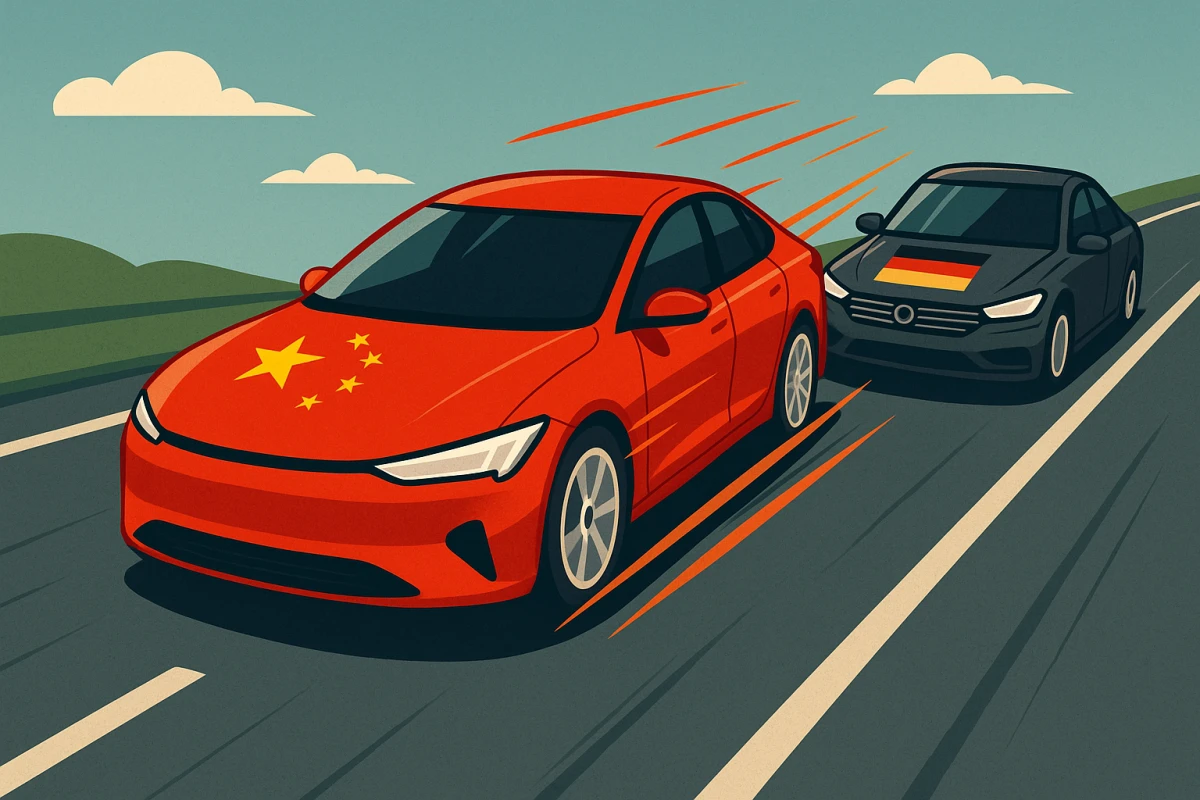
When Strength Turns into Weakness
For years, it looked like a smart bet on stability. Germany built its economy on a few strong pillars and for a long time, they worked. Export orientation, close cooperation with China, cheap energy from Russia, and the dominance of the automotive industry. These were the trump cards that kept Germany growing, even when much of the world was talking about stagnation.
But according to Münchau, these very strengths have now turned into traps.
China: Trading Partner – and Strategic Threat
Over the span of just two decades, Germany became heavily dependent on the Chinese market, especially in the automotive and engineering sectors. In some years, exports to China accounted for as much as 7–8% of total German exports.
But today, China is not only a key customer — it’s also a technological competitor. Brands like BYD and Huawei are threatening German companies exactly where they were once the strongest.
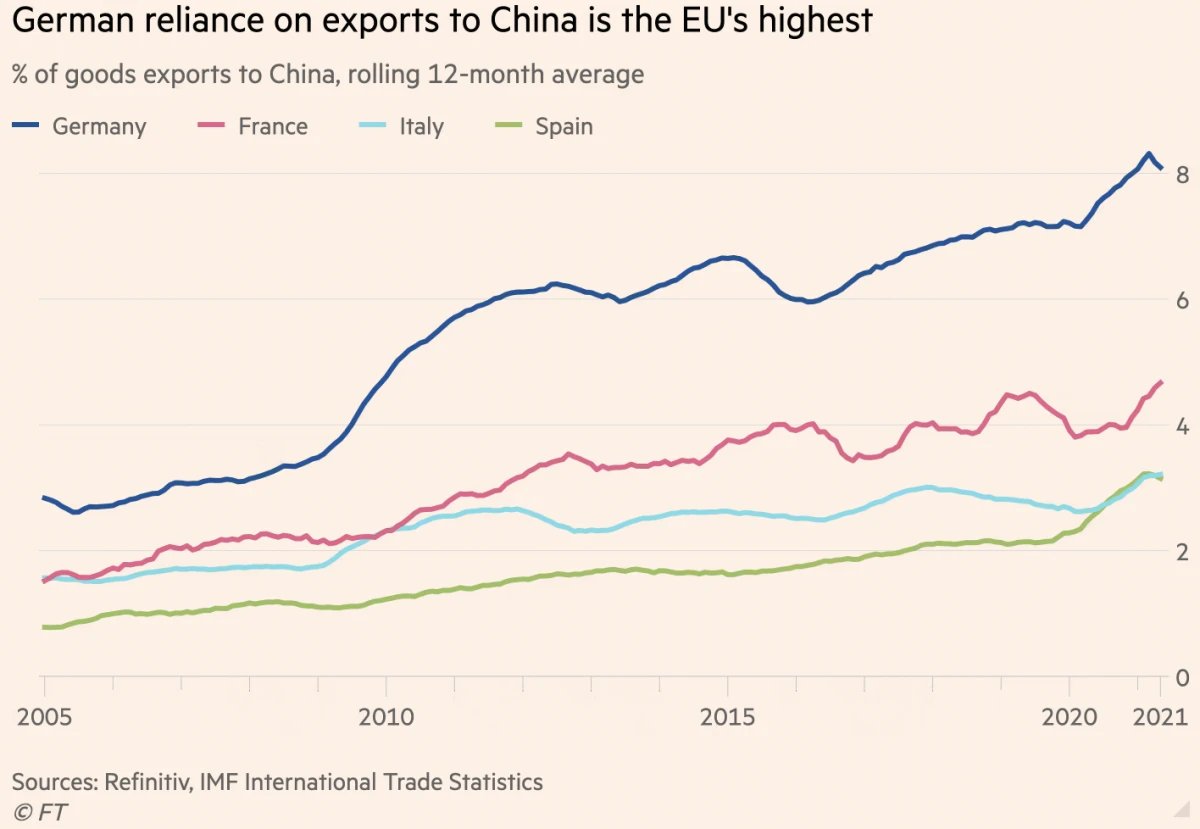
The Strategic Blindness of Cheap Russian Gas
For years, cheap energy from Russia secured Germany’s industrial competitiveness. In 2021, Russian gas accounted for over 55% of Germany’s total gas imports. But after the invasion of Ukraine, this dependency backfired — revealing that Germany’s energy strategy had been driven more by ideology than rational assessment.
Driving Into Trouble: How Carmakers Weigh Down the System
Münchau argues that Germany has become a hostage to its own automotive industry. In 2019, the sector – both directly and indirectly — accounted for more than 10% of the country’s GDP.
What was once a symbol of innovation has now become an obstacle to change. German carmakers invested billions into combustion engine technologies and missed the shift toward electric mobility, a field now led by others, including Chinese competitors.
Germany’s Digital Blind Spot
The country that gave the world carmakers, the chemical industry, and pioneering engineering is now lagging at the back of the digital transformation race.
In a nation long seen as the epitome of efficiency, faxes are still common at post offices, and digital communication with public authorities often ends with a printed payslip. As German journalists sarcastically put it, Germany is an “analog superpower.”
Wolfgang Münchau devotes an entire chapter of Kaput to this issue — and he doesn’t hold back.
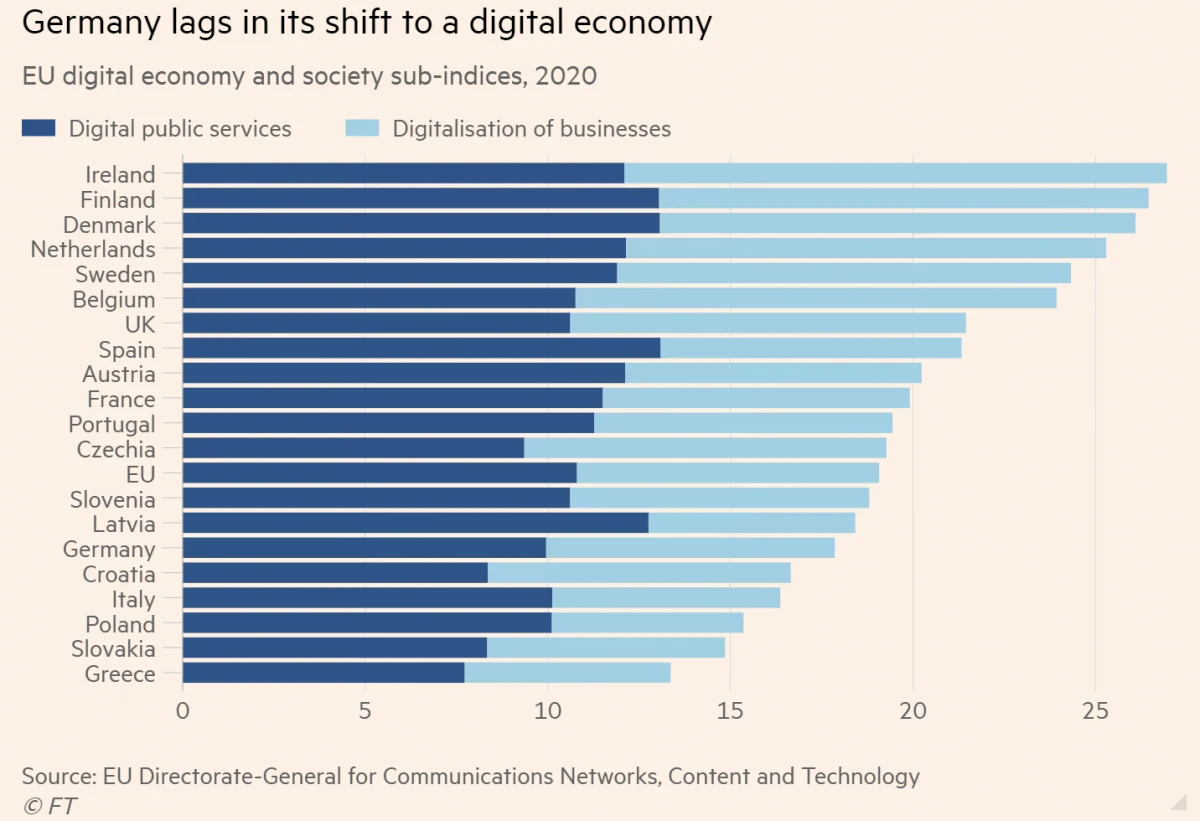
How Germany Fell Behind in Technological Development
According to Münchau, it's not just about slow internet or outdated government websites. The real issue is that digital modernity clashes with deeply rooted German values: a strong emphasis on security, stability, rules, and planning. In such a culture, risk is seen as irresponsibility and failure as a sign of incompetence, not a learning experience.
"For a moment, I thought Germany might recover. It didn’t. [...] Investments that never happen don’t make noise — and they don’t vote either. In the end, Scholz’s government did the same as the one before: it fed the old industrial 'monster'."
From Münchau’s perspective, Germany remains trapped in the mindset of industrial modernity. It expects progress to arrive in a linear, hierarchical fashion approved from the top down. But the digital world is its opposite: chaotic, networked, built on iteration and adaptability.
According to Münchau, this cultural barrier has real economic consequences. A country that once drove innovation is now merely catching up in key strategic fields. In areas like AI, digital platforms, or cloud services, Germany no longer leads — it reacts. And that, he argues, is one of the reasons why its economic model is losing momentum.
Germany Trapped in Its Own Structures
If the earlier chapters of Kaput reveal the gradual weakening of Germany’s economic model, this section strikes a far darker tone. Wolfgang Münchau argues that Germany is not just facing a series of crises, but a systemic breakdown.
Here, the author focuses on several key areas where, in his view, Germany has failed to act in time. And he does so in a way that goes well beyond economics, pointing directly at culture, society, and the state itself.
Education: From Strength to Vulnerability
Germany’s once-strong education system, Münchau argues, is now on the verge of collapse. A shortage of teachers, outdated curricula, declining student motivation and preparedness all contribute to the crisis. A country that once trained world-class engineers and technicians is now struggling with a lack of qualified workers in key industries.
Banking Sector: Too Many Banks, Too Little Performance
According to Münchau, Germany has one of the least efficient banking structures in Europe. Instead of a few strong and stable banks, the country is home to hundreds of smaller, often regional institutions — many of them operating with outdated IT systems and a weak culture of innovation. This fragmentation holds back investment in modern sectors and preserves outdated economic structures.
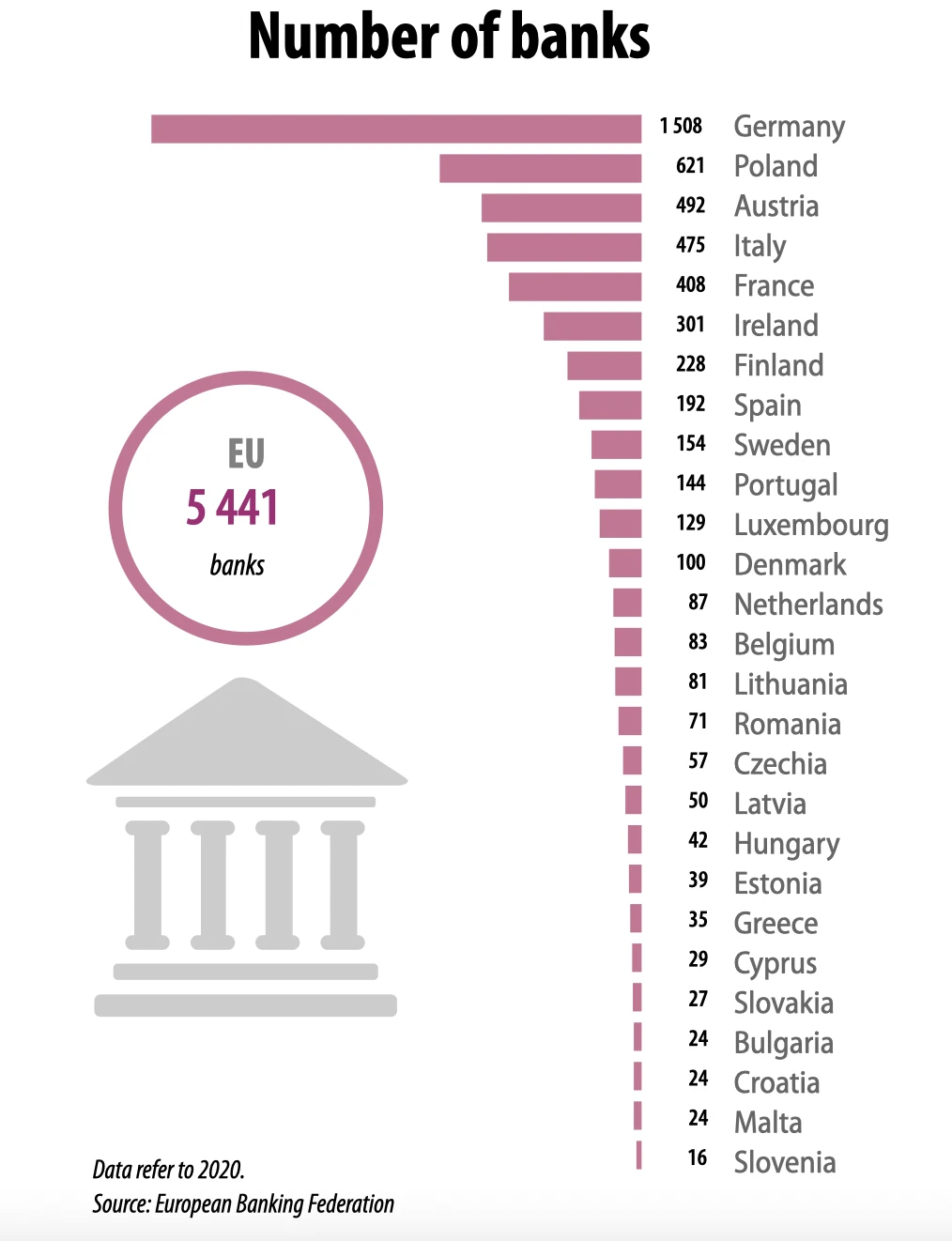
Political Paralysis and Bureaucratic Jungle
Another core issue lies in the functioning of the state itself. Münchau argues that German politics has turned into “technical administration without direction.” The state is losing its ability to plan strategically and drive change.
Instead, it gets bogged down in endless procedures, legal loopholes, and formalism. Innovation, investment, and reform are often lost in translation between the responsibilities of federal states, ministries, and bureaucratic institutions.
Key Takeaways from Kaput
Kaput doesn’t list everything that’s wrong with Germany to scare off investors or online retailers. On the contrary — it offers a realistic view of how the context has changed. And that’s exactly what matters for anyone considering expansion into the DACH region today.

1. Trust is shifting — and so is consumer behavior
But this opens the door for those who can offer something different — authentic, flexible, and reasonably priced.
2. The giants are losing momentum
What once worked, like a focus on perfectionism, long-term planning, and stability — can now act as a brake. If you offer speed, innovation, or flexibility, you might be exactly what today’s customer is looking for. German consumers are more open to alternatives than they used to be. If you deliver clear value and understand the local context, you might just surprise them.
3. The DACH market remains one of the strongest in Europe
It has high purchasing power, strong infrastructure, and customers who buy online. You just need a different mindset than you did in 2018.
4. As big players lose trust, small ones gain ground
The German market is at a turning point. Trust in big brands is fading, and consumers are actively looking for alternatives. This opens the door for smaller, agile brands that communicate clearly and deliver real value.
The DACH region remains a large and powerful market and those who can offer a compelling proposition have a real chance to succeed right now.
Kaput won’t teach you SEO or logistics. But it will help you think like someone who doesn’t just want to sell in Germany, but to succeed there.
Table of contents
- The Glory Years of the German Miracle
- When Strength Turns into Weakness
- China: Trading Partner – and Strategic Threat
- The Strategic Blindness of Cheap Russian Gas
- Driving Into Trouble: How Carmakers Weigh Down the System
- Germany’s Digital Blind Spot
- How Germany Fell Behind in Technological Development
- Germany Trapped in Its Own Structures
- Education: From Strength to Vulnerability
- Banking Sector: Too Many Banks, Too Little Performance
- Political Paralysis and Bureaucratic Jungle
- Social Tensions and Migration
- Key Takeaways from Kaput

Wie wir Sie unterstützen können
Unser Team unterstützt Sie sowohl bei den ersten Schritten Ihrer Expansion als auch bei langfristigen Marketingstrategien.
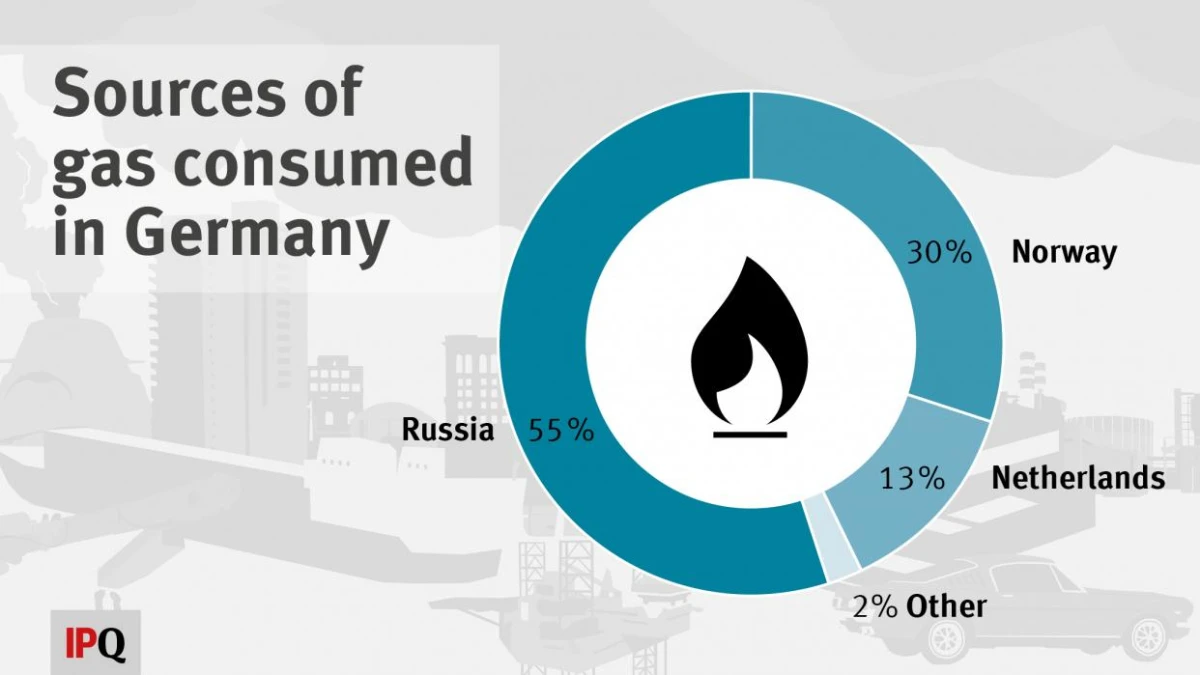

Social Tensions and Migration
Although the book avoids cheap populist judgments, the author does not hide the fact that Germany is facing serious demographic and integration challenges.
However, he argues that the core problem isn’t migration itself — it’s the absence of a clear strategy to manage it. Once again, we see a system paralyzed, unable to respond with flexibility.